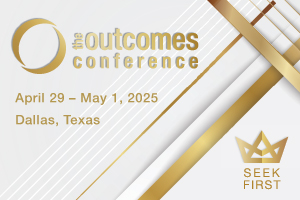
Your Best Self By Jon Lokhorst
SHOW UP AS YOUR BEST SELF IN EVERY SITUATION
By Jon Lokhorst ~
Have you ever left a conversation thinking, “I didn’t come across very well”? Or left a meeting telling yourself, “I don’t think I added much value to that discussion”? Or finished a presentation wondering why you failed to make an important point?
As leaders, every presentation, meeting, and interaction is an expression of our leadership. Yet, we often fail to carry a leadership presence into those situations. Instead, we go into them unprepared, “winging it” throughout the day. It’s no wonder we fall short of our own expectations.
This post offers three strategies to help you as a leader show up as your best self in every situation: self-observation, feedback, and mental practice.
Self-observation
Leadership professor Charles Manz contends that self-observation is the lifeblood of self-leadership. Self-observation enables us to observe our own behaviors to gain information on them and, in turn, manage them. Self-observation leads to self-awareness, a critical leadership competency.
The Apostle Paul implores us to think of ourselves with “sober judgment” (Romans 12:3). In other words, take an honest look at our strengths and weaknesses, successes and failures. Assessments are valuable tools to gain a better understanding of ourselves (i.e., Strengthsfinder, DISC, RightPath, etc.). These steps help us distinguish between the behaviors that show our best selves and those that don’t.
How can you build time for self-observation into your routines?
Set up a daily reminder on your calendar. Pause between meetings. Record your reflections in a journal. Notice behavioral patterns and lean into the ones that reflect your best self.
Feedback
As we better understand our personal strengths and weaknesses, it’s also important to explore any blind spots or behaviors that we aren’t aware of. This is where we invite others into the process. Manz stresses the value of relationships as “an ongoing source of enrichment, learning, and resilience, and a cue for personal reflection and development in general.”
Seeking feedback from trusted friends, colleagues, or mentors is one of the most effective ways to discover our blind spots. Honest feedback may sting but, as Proverbs 27:6 states, “Wounds from a friend can be trusted.”
Who will you invite to give you honest feedback? Include the people you lead by asking them, “What’s it like to be on the other side of my leadership?” Consider a 360-degree assessment to obtain feedback from a range of people who experience your leadership in action. Use your findings to work on your blind spots.
Mental practice
Top athletes, musicians, and other performers use positive visualization to imagine themselves achieving their goals. Andrew Bryant and Ana Kazan, authors of Self-Leadership: How to Become a More Successful, Efficient, and Effective Leader from the Inside Out, emphasize the importance of this mental imagery. They write, “To be a self-leader it is essential to gain control of your imagination, because whether you are imagining good things or bad, you are setting up a self-fulfilling prophecy.”
Make mental practice a habit by imagining yourself successfully completing each task or event before you start it. This technique is effective for any task, project, presentation, meeting, conversation, phone call, etc. When possible, take your mental practice a step further by scripting out your behavior in advance, and rehearsing as if you were going to perform on a big stage.
Ready to practice?
Take a minute or two before every opportunity to exhibit your leadership. Ask yourself: Who am I and what role do I play in this situation? How do I want to come across? How can I add value? What does a successful outcome look like? Then, perform a mental (or actual) walk-through as you picture your best self in that situation.
Show up as your best self
Want to ensure that you show up as your best self in every situation? Enhance your leadership presence and results by developing these strategies of self-observation, feedback, and mental practice.
####
Jon Lokhorst, CPA (inactive), is a leadership coach and consultant, partnering with organizational leaders to maximize their talent, build high-performance teams and deliver extraordinary value to their constituents. Contact him at jon@lokhorstconsulting.com.
Here is how to ensure a strong start to the New Year!
Now you can find someone to speak into your life and give you the feedback and counsel you need. The 1:1 Outcomes Mentoring experience provides a pathway for a leader with specific needs to be matched and connected with another leader who is willing to guide, coach and mentor the one in need.
Mentors lend the knowledge and the expertise others seek. Following the pattern found in scripture, wise leaders look for opportunities to give of their time and talent to strengthen others. LEARN MORE about this life-changing experience and begin the new year strong.

CLA appreciate the sponsors of ths dynamic life long learning experience:





